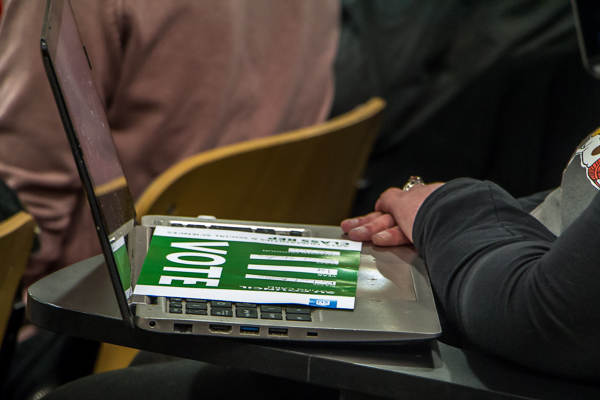Trinity College Dublin Students’ Union (TCDSU) has been found to have breached its constitution, resulting in by-elections being called for several standing committees.
A number of breaches of the constitution have been noted by the Oversight Committee including that the union has failed to elect standing committees at council, as stated by the constitution.
Sabbatical officers and part-time officers have been electing committees in AGMs and through other application processes. However, elections should have taken place at council to fill these positions. All breaches were highlighted by the Oversight Commission in a report submitted ahead of TCDSU council this evening.
Although members of the current education committee were all elected at council, only some members of the communications committee were elected at council. None of the welfare committee were elected at council.
Due to this constitutional breach, the welfare and communications committees don’t exist under the constitution. As a result, welfare and communications elections will be on the agenda for next council.
Speaking to The University Times before council, Alice MacPherson, the TCDSU Education Officer, said “the Electoral Commission are now going to meet and decide how those by-elections should be held at the next council and determine the procedure for them”. Conscious of the work that has already been done by the current committees, she said it is important that “their work, that they’ve put a lot of time and effort into, isn’t lost”. However she stressed that there must be a “fair and open process” moving forward.
Other breaches were also outlined by the Oversight Commission in its report including council’s failure to nominate someone to manage the union’s schedules, in particular Schedule 9, which lists all union committees in existence, and Schedule 10, which is a list of all part-time officers, are both out of date. Schedules are appendices of the constitution that list certain key elements of the union.
In the agenda for council, Loic Delorme of the Oversight Commission said the breaches have occurred due to “honest ignorance”. MacPherson confirmed this and said that the breaches have “been going on for a number of years”. This “created a precedent that we followed”, she explained. She cited the fact that sabbatical teams are only in office for one year as a contributing factor to the ongoing breach.
Although no action is required, council will have the opportunity to deal with the breach however it sees fit.
The Oversight Commission stressed that it is at the discretion of council what action, if any, will be taken in order to remedy these breaches. They also highlighted the lack of transparency in not effectively managing and updating Schedules.
The final breach that will be brought to the attention of council this evening involves the creation of ad hoc committees. At present, a motion at council is required in order to create an ad hoc committee. However, this process has not always been followed.
The Oversight Commission outlined three different situations of potential breach. The first are described as the “maybe-ok-cases”, whereby council has been choosing membership by delegating the role of choosing to someone else.
The second are the “probably-not-ok-cases”, whereby council has made a sub-committee but not said who is on it. And finally, the Oversight Commission has said there are “clear breach cases”, which involve committees being created without any motion at all.
MacPherson called this a “growing moment for the students’ union”.







